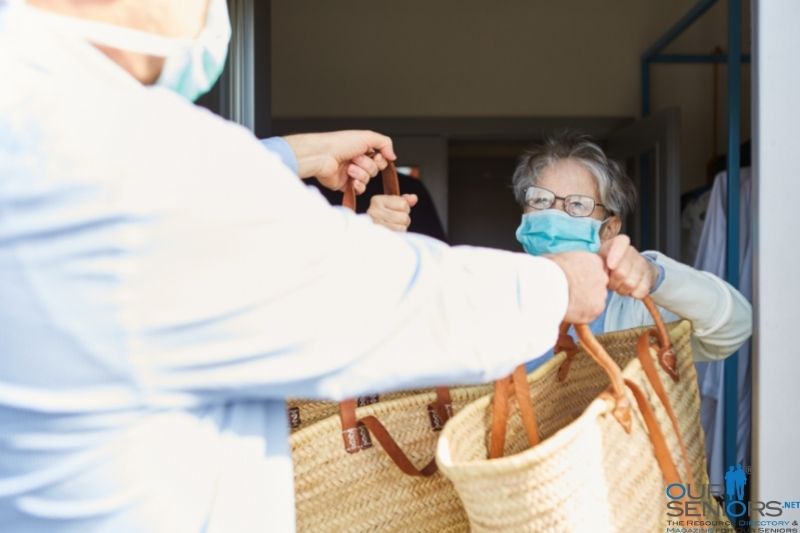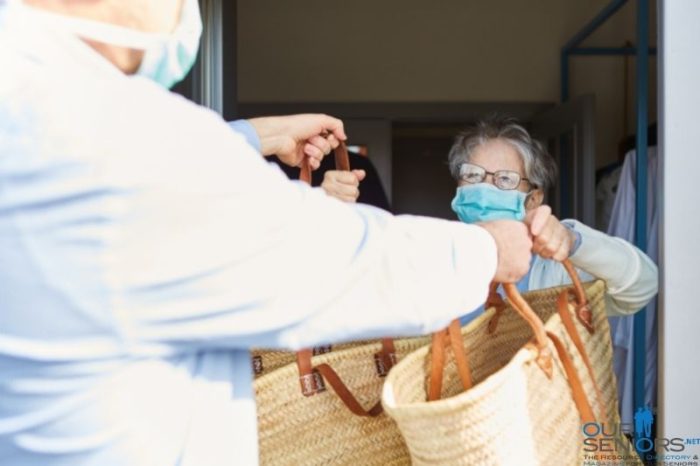
Covid-19 affected everyone in the new United States. Feelings of uncertainty regarding the effects of being infected, transmission to others, quarantine and isolation recommendations, and vaccines affected us all. But no group may have been impacted more than seniors. And as pandemic restrictions begin to ease in the U.S., many seniors will likely have new questions about what is and isn’t allowed. Many would like to revisit with friends and family and lend a helping hand in any way possible, especially when it comes to helping those that have been affected by Covid-19.
Know the Difference Between Quarantine and Isolation
The CDC recommends people quarantine if they have been within 6 feet of someone who has Covid-19 unless they have been fully vaccinated. Despite being fully vaccinated you may still contract the disease and will need to quarantine if you have any symptoms or test positive within 5 to 7 days after exposure. If you are not fully vaccinated and have been in contact with someone that does have Covid-19, you should stay at home for at least 14 days.
People should be in isolation if they have been infected with Covid-19. If symptoms are not severe, people can stay at home in a segregated area of the house (e.g., a sick room) as well as use a separate bathroom if necessary. People that have more serious symptoms should seek medical care immediately.
Reach Out to Them if They Are in Quarantine or Isolation
Many people in quarantine or isolation may feel disconnected from the world. Seniors may be experiencing several mental health issues such as depression, stress, emotional disturbance, irritability, and insomnia. There are also concerns about physical health. Many seniors may have trouble moving around the house and require some type of assistance like cooking and cleaning. Others might require assistance picking up supplies or prescriptions. No matter what their needs might be, keeping close contact has several benefits.
Reaching out by phone, email, or video chat is a great way of staying connected and finding out how friends or family are doing. It lets them know you are not abandoning them or have forgotten about them altogether. It also provides you with the opportunity to find out what, if any, needs they may have whether it be mental or physical. Even communicating for just a few minutes a day can have positive effects on their overall well-being and help them get through a difficult time much easier.
Find Out How Long They Have Been in Quarantine or Isolation
You should always check with the local public health authorities for information based on the quarantine and isolation conditions and needs in your area. You can also follow these guidelines to stay safe if you are planning on visiting after quarantine or isolation:
If you plan on helping any of your friends or family members in a normal setting after they have been affected by Covid-19 and have been in quarantine, make sure it has been at least 10 days if they have not had any symptoms but have not taken a test. You can visit them after 7 days if they have received a negative test. If you are visiting someone that had Covid-19 and was in isolation, they should no longer show any symptoms and should have also tested negative for at least 7 days before receiving any visitors.
Be Efficient and Plan Your Trip Accordingly
In cases where you will be helping friends or family that are in quarantine or isolation, you should plan your trip to have as little to no contact. Therefore, it is important to communicate with the person ahead of time so that you can know precisely what kind of assistance that person needs and can determine how to go about providing help. In the case where someone is in quarantine, you can visit with precautions. Always wear a mask and keep your distance (6 feet) if you need to go indoors. In the case where someone is in isolation, you should have no close contact at all. So, it is important that the person that is infected with Covid-19 stays in a separate room. Be sure to always wear a mask and wash your hands frequently during the visit.

